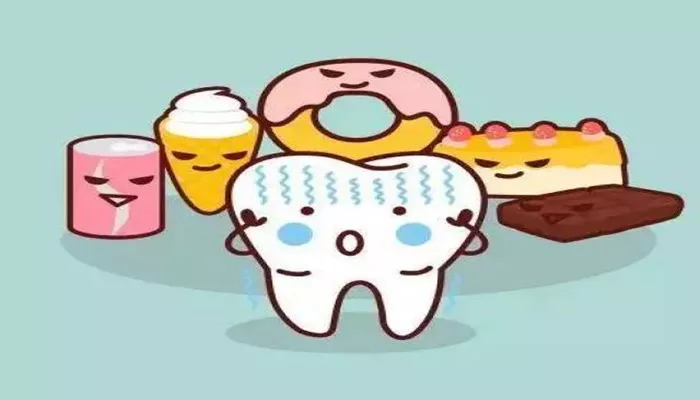Tooth decay is a significant dental issue affecting people of all ages. While poor oral hygiene and high sugar intake are well-known causes, certain medications can also contribute to the development of cavities. This article will explore various drugs that can lead to tooth decay, how they affect oral health, and what you can do to mitigate their effects.
Understanding Tooth Decay
What Is Tooth Decay?
Tooth decay, also known as dental caries, occurs when bacteria in the mouth produce acids that erode the enamel, the hard outer layer of the tooth. If decay is not treated, it can progress to deeper layers of the tooth, leading to pain, infection, and even tooth loss.
How Do Medications Contribute to Tooth Decay?
Certain medications can lead to tooth decay in several ways:
Dry Mouth: Many medications can reduce saliva production. Saliva is essential for neutralizing acids and washing away food particles. A dry mouth creates an environment where bacteria can thrive, increasing the risk of cavities.
Changes in Diet: Some medications may alter taste or appetite, leading individuals to choose sugary or unhealthy foods that contribute to tooth decay.
Acidic Formulations: Some medications, especially liquid forms, can be acidic. Frequent exposure to acid can erode tooth enamel, leading to decay.
Oral Health Neglect: Some individuals may neglect their oral hygiene while managing chronic health conditions that require medications, further increasing the risk of decay.
Common Drugs That Cause Tooth Decay
1. Antihistamines
How They Affect Oral Health
Antihistamines are commonly used to treat allergies and colds. They work by blocking histamine receptors, which can lead to reduced saliva production. This condition, known as xerostomia or dry mouth, increases the risk of tooth decay.
Examples of Antihistamines
- Diphenhydramine (Benadryl)
- Loratadine (Claritin)
- Cetirizine (Zyrtec)
2. Antidepressants
How They Affect Oral Health
Many antidepressants, particularly selective serotonin reuptake inhibitors (SSRIs), can cause dry mouth as a side effect. Reduced saliva can lead to an increase in plaque buildup and a higher risk of cavities.
Examples of Antidepressants
- Fluoxetine (Prozac)
- Sertraline (Zoloft)
- Citalopram (Celexa)
3. Blood Pressure Medications
How They Affect Oral Health
Some blood pressure medications, especially diuretics, can lead to dry mouth. This condition can make it difficult for the mouth to wash away food particles and neutralize acids, increasing the risk of tooth decay.
Examples of Blood Pressure Medications
- Hydrochlorothiazide
- Furosemide (Lasix)
- Atenolol
4. Pain Medications
How They Affect Oral Health
Certain pain medications, especially opioids, can cause dry mouth as a side effect. Additionally, individuals using pain medications may neglect their oral hygiene due to discomfort or focus on managing their pain.
Examples of Pain Medications
- Oxycodone (OxyContin)
- Hydrocodone (Vicodin)
- Morphine
5. Muscle Relaxants
How They Affect Oral Health
Muscle relaxants can also lead to dry mouth. Reduced saliva production can create an environment where bacteria thrive, increasing the risk of cavities.
Examples of Muscle Relaxants
- Cyclobenzaprine (Flexeril)
- Carisoprodol (Soma)
- Methocarbamol
6. Chemotherapy Drugs
How They Affect Oral Health
Chemotherapy drugs can have a profound impact on oral health. They can cause dry mouth, mucositis (inflammation of the mucous membranes), and other side effects that increase the risk of tooth decay and gum disease.
Examples of Chemotherapy Drugs
- Doxorubicin
- Cyclophosphamide
- Methotrexate
7. Oral Contraceptives
How They Affect Oral Health
Some studies suggest that hormonal changes from oral contraceptives can lead to dry mouth or changes in the oral microbiome, potentially increasing the risk of cavities.
Examples of Oral Contraceptives
- Ethinyl estradiol and norethindrone (Ortho-Novum)
- Levonorgestrel and ethinyl estradiol (Alesse)
How to Mitigate the Effects of Medications on Oral Health
1. Maintain Good Oral Hygiene
Good oral hygiene is essential for preventing tooth decay, especially if you are taking medications that cause dry mouth.
Here are some tips:
Brush Twice a Day: Use fluoride toothpaste and brush for at least two minutes each time.
Floss Daily: Flossing helps remove plaque and food particles from between teeth.
Use Antimicrobial Mouthwash: An antimicrobial mouthwash can help reduce bacteria in the mouth.
2. Stay Hydrated
Drinking plenty of water is crucial for maintaining saliva production. Staying hydrated can help combat dry mouth and reduce the risk of tooth decay.
3. Use Saliva Substitutes
Over-the-counter saliva substitutes can help alleviate dry mouth. These products can provide moisture and help protect against cavities.
4. Chew Sugar-Free Gum
Chewing sugar-free gum can stimulate saliva production. Look for gums that contain xylitol, which can help reduce tooth decay.
5. Avoid Sugary Foods and Drinks
Limit your intake of sugary snacks and beverages, as these can contribute to tooth decay. Opt for healthier snacks, such as fruits, vegetables, and nuts.
6. Regular Dental Check-Ups
Regular visits to the dentist are essential for maintaining oral health. Your dentist can monitor your dental health, provide professional cleanings, and identify early signs of decay.
7. Discuss Medication Side Effects with Your Doctor
If you are concerned about the effects of your medications on your oral health, discuss these concerns with your healthcare provider. They may be able to adjust your medication or recommend alternative treatments that have fewer side effects.
Conclusion
Certain medications can significantly contribute to tooth decay, primarily through the mechanism of dry mouth.
Antihistamines, antidepressants, blood pressure medications, pain medications, muscle relaxants, chemotherapy drugs, and oral contraceptives are among the common drugs that can impact oral health.
Maintaining good oral hygiene, staying hydrated, and making dietary adjustments are essential steps to mitigate the effects of these medications on your teeth. If you are taking any of these medications, it is crucial to be proactive about your dental health. Regular dental check-ups and open communication with your healthcare provider can help you maintain a healthy smile despite the challenges posed by medication side effects. Remember, prevention is key to avoiding tooth decay and ensuring long-term oral health.
Related topics:

